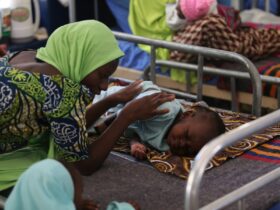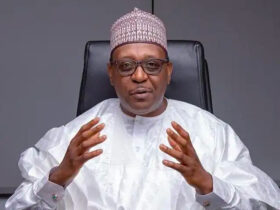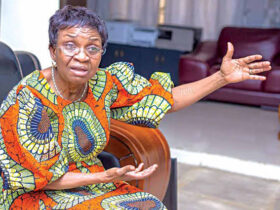Dr. Ibrahim Wada, a renowned medical expert, has predicted that advancements in modern medicine could extend the human lifespan to 250 years within the next four decades.
As the Founder of Nisa Medical Group, Wada made this statement while delivering the Second Nimi Dimkpa Briggs Legacy Lecture at the University of Port Harcourt (UNIPORT) on Thursday.

Speaking on the topic “The Longevity of Man,” he emphasized that rapid progress in medical technology and genetic engineering could make such a breakthrough possible.
Wada highlighted significant advancements in genetic science, including the ability to create artificial eggs and sperm from human saliva, which could be used to develop babies in artificial wombs.
“This technology has already produced live rats. It is only a matter of time before humans benefit from similar advancements,” he disclosed.
Wada, an Associate Professor of Obstetrics and Gynaecology at Abubakar Tafawa Belewa University, Bauchi, further emphasised the potential of stem cells, artificial organs, and genetic reprogramming in prolonging human life.
According to him, science has now reached a stage where human genetic codes can be understood and manipulated to enhance longevity.
READ ALSO: Peter Obi Urges Nigerians to Reflect on Nation’s Challenges During Lenten Season
“Recreating stem cells from a person’s genes and reintroducing them into the body can regenerate dead cells and significantly extend lifespan.
“In another 30 to 40 years, it will be normal for individuals to expect to live for 200 or even 250 years.
“This will happen because humanity has now entered the age of computer reprogramming,” he added.
Wada lamented the fact that such advanced medical technologies are not yet available in Nigeria.
He also stressed the importance of regular medical check-ups, healthy eating, regular exercise, and adequate rest in achieving longevity.
“Rest is essential for brain function. So, when it is time to rest, you must allow the brain to rest – no compromise,” Wada advised.
Reflecting on the legacy of Prof. Briggs, UNIPORT’s Vice Chancellor, Prof. Owunari Georgewill, described Briggs as a visionary leader, philanthropist, and academic giant.
He questioned whether longevity was merely a measure of biological persistence or encompasses something more profound.
“This is because it is not the breath we take, but the fire we ignite,” Georgewill remarked.
Prof. Ngozi Orazulike, Chair Occupant of the Nimi Briggs Professorial Chair in Obstetrics and Gynaecology, noted that Briggs made immense contributions to the medical and teaching professions.
She stated that the late medical icon had a multifaceted career as a doctor, teacher, researcher, mentor, and philanthropist.
In response, the late icon’s son, Nima Briggs, expressed gratitude for the continued recognition of his father’s contributions in the country.
“It is humbling to see my father’s legacy live on, with events still being organised to honour his memory,” Briggs concluded.
Follow the Parallel Facts channel on WhatsApp: https://whatsapp.com/channel/0029VaCQSAoHgZWiDjR3Kn2E









Leave a Reply